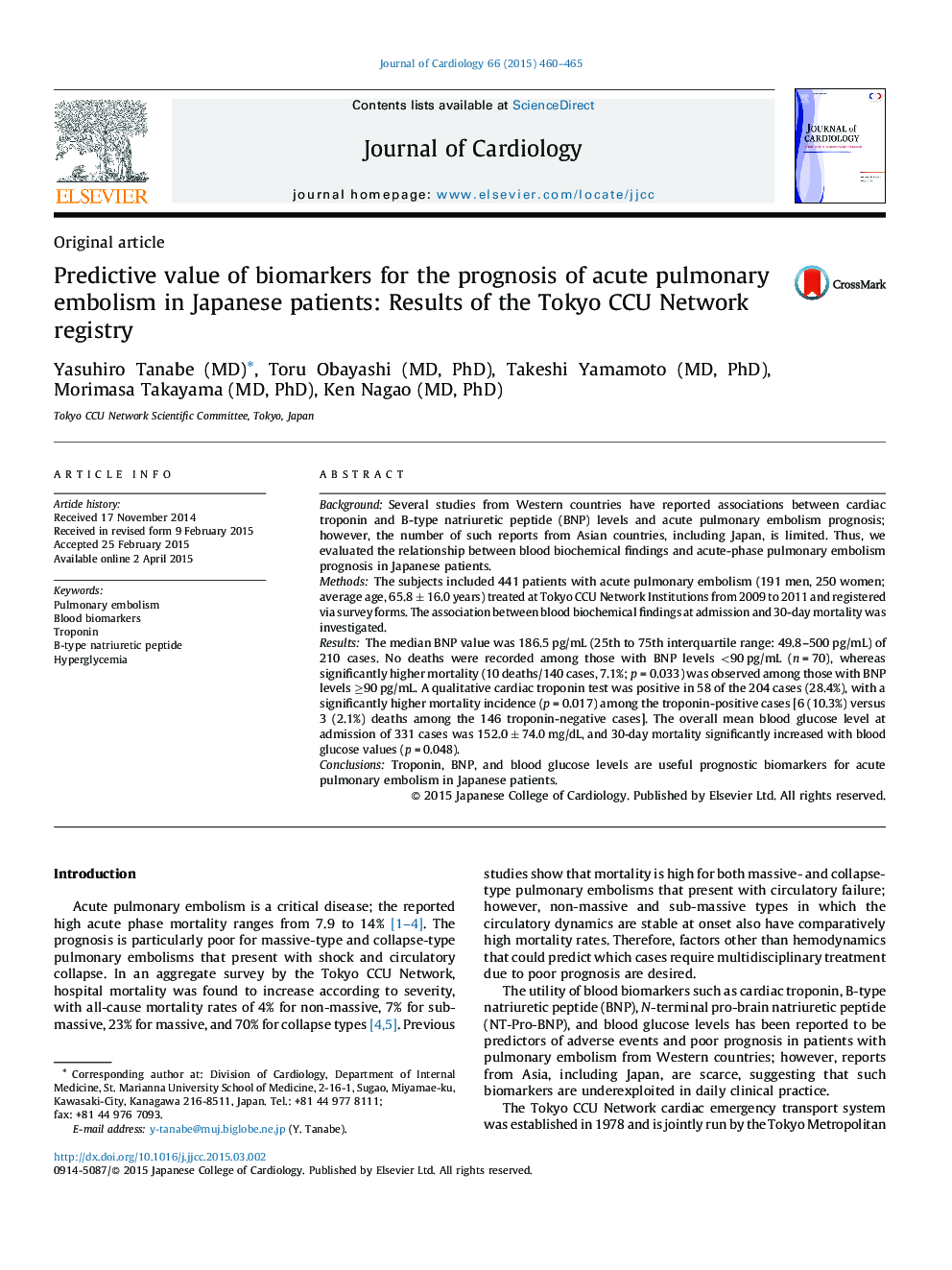| Article ID | Journal | Published Year | Pages | File Type |
|---|---|---|---|---|
| 2962986 | Journal of Cardiology | 2015 | 6 Pages |
BackgroundSeveral studies from Western countries have reported associations between cardiac troponin and B-type natriuretic peptide (BNP) levels and acute pulmonary embolism prognosis; however, the number of such reports from Asian countries, including Japan, is limited. Thus, we evaluated the relationship between blood biochemical findings and acute-phase pulmonary embolism prognosis in Japanese patients.MethodsThe subjects included 441 patients with acute pulmonary embolism (191 men, 250 women; average age, 65.8 ± 16.0 years) treated at Tokyo CCU Network Institutions from 2009 to 2011 and registered via survey forms. The association between blood biochemical findings at admission and 30-day mortality was investigated.ResultsThe median BNP value was 186.5 pg/mL (25th to 75th interquartile range: 49.8–500 pg/mL) of 210 cases. No deaths were recorded among those with BNP levels <90 pg/mL (n = 70), whereas significantly higher mortality (10 deaths/140 cases, 7.1%; p = 0.033) was observed among those with BNP levels ≥90 pg/mL. A qualitative cardiac troponin test was positive in 58 of the 204 cases (28.4%), with a significantly higher mortality incidence (p = 0.017) among the troponin-positive cases [6 (10.3%) versus 3 (2.1%) deaths among the 146 troponin-negative cases]. The overall mean blood glucose level at admission of 331 cases was 152.0 ± 74.0 mg/dL, and 30-day mortality significantly increased with blood glucose values (p = 0.048).ConclusionsTroponin, BNP, and blood glucose levels are useful prognostic biomarkers for acute pulmonary embolism in Japanese patients.
